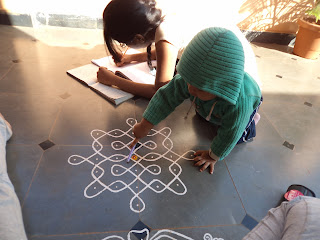Cute Angels
Friday, April 13, 2012
Thursday, April 12, 2012
Thursday, August 11, 2011
Indian Anti-corruption activist Anna Hazare for Jan Lokpal Bill (Citizen...
What is Lokpal Bill? (Anti-corruption)
Anna Hazare Indian social activist fasting from April 2011 for Jan Lokpal Bill (Citizen's ombudsman Bill)
The first Lokpal Bill was passed in the 4th Lok Sabha in 1969 but could not get through in Rajya Sabha, subsequently, Lokpal bills were introduced in 1971, 1977, 1985, 1989, 1996, 1998, 2001, 2005 and in 2008, yet they were never passed. Th Lokpal Bill was visualised as the watchdog institution or ministerial probity. Broadly the provisions of different bills empowered the Lokpal to investigate corruption cases against political persons at the central level.
Main objective of the bill is to provide speedy, cheaper form of justice to people. In the proposed system Lokpal will have complete powers to dismiss a corrupt official.
Lok Pal will have powers to probe or prosecute any judge, even CJI, without any permission while in present scenario CJI permission is required even to register FIR against any judge. Also, in the proposed system, politicians will not have any say in selections of chairperson and members of Lokpal.
Loss caused to government will be recovered from accused. The punishment if found guilty will be 5 years to maximum life term in the proposed system. Right now the punishment is 6 months to maximum 7 years.
http://hyderabad.0fees.net/anna-hazare-indian-social-activist-fasting-for-jan...
A look at the salient features of Jan Lokpal Bill:
1. An institution called LOKPAL at the centre and LOKAYUKTA in each state will be set up
2. Like Supreme Court and Election Commission, they will be completely independent of the governments. No minister or bureaucrat will be able to influence their investigations.
3. Cases against corrupt people will not linger on for years anymore: Investigations in any case will have to be completed in one year. Trial should be completed in next one year so that the corrupt politician, officer or judge is sent to jail within two years.
4. The loss that a corrupt person caused to the government will be recovered at the time of conviction.
5. How will it help a common citizen: If any work of any citizen is not done in prescribed time in any government office, Lokpal will impose financial penalty on guilty officers, which will be given as compensation to the complainant.
6. So, you could approach Lokpal if your ration card or passport or voter card is not being made or if police is not registering your case or any other work is not being done in prescribed time. Lokpal will have to get it done in a month's time. You could also report any case of corruption to Lokpal like ration being siphoned off, poor quality roads been constructed or panchayat funds being siphoned off. Lokpal will have to complete its investigations in a year, trial will be over in next one year and the guilty will go to jail within two years.
7. But won't the government appoint corrupt and weak people as Lokpal members? That won't be possible because its members will be selected by judges, citizens and constitutional authorities and not by politicians, through a completely transparent and participatory process.
8. What if some officer in Lokpal becomes corrupt? The entire functioning of Lokpal/ Lokayukta will be completely transparent. Any complaint against any officer of Lokpal shall be investigated and the officer dismissed within two months.
9. What will happen to existing anti-corruption agencies? CVC, departmental vigilance and anti-corruption branch of CBI will be merged into Lokpal. Lokpal will have complete powers and machinery to independently investigate and prosecute any officer, judge or politician.
10. It will be the duty of the Lokpal to provide protection to those who are being victimized for raising their voice against corruption.
Subscribe to:
Comments (Atom)














